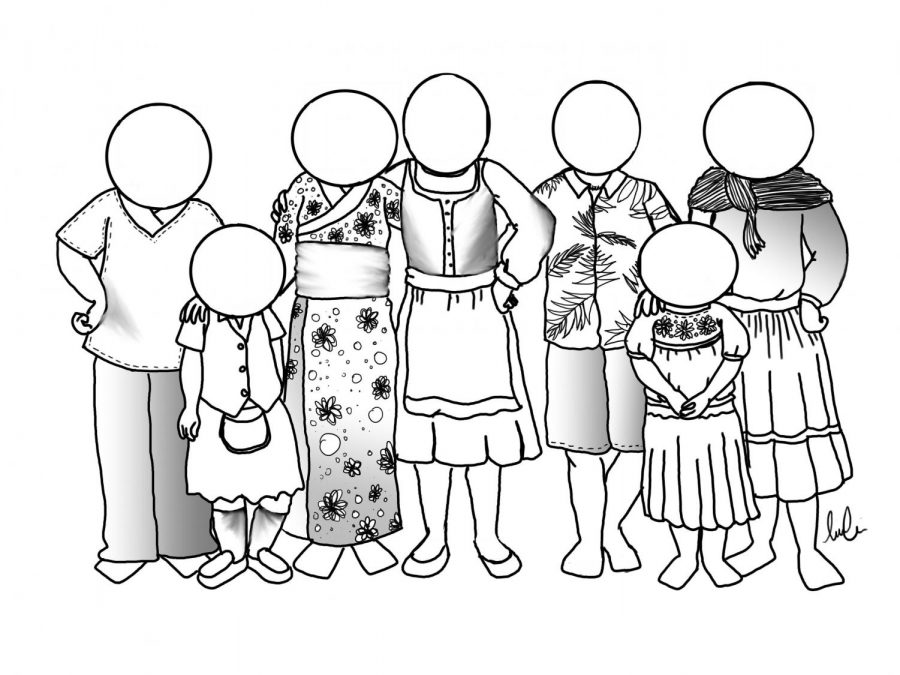A&E: SCHS students express their appreciation towards their own cultural fashion
After admiring themselves in their mirror, a student hands their relative a tube of mascara to apply the final touches before heading to the festival.
Many members of the SCHS community find their culture and ethnicity’s traditional clothing is important to them and the diversity on campus.
Senior Maile Wong explains the significance of the Obon summer festival.
“There are various types of kimonos, hair pieces, makeup, obi and footwear for different occasions,” Wong said. “For the Obon festival, typically women dress in yukata, a type of cotton kimono that is lighter for the heat, and the men wear happi coats, kimono-like shirts.”
Wong also reflected on the role these pieces have played in her life.
“These (traditional articles of clothing ) have just kind of been a part of my life forever,” Wong said. “It’s interesting to remember that not everyone calls sandals ‘zori,’ or has bundles of kimonos in their closets.”
Junior Adreema Ahsan described common Bengali fashion, which includes the saree and the salwar kameez.
“Most commonly in Bengali fashion, the traditional attire is the saree, which is usually made of cotton or silk and is a large piece of cloth draped over the body in artistic ways,” Ahsan said. “Another clothing that is worn is the salwar kameez for more casual occasions. The dress is long and often embroidered with many different designs.”
For Ahsan, wearing the saree is inspiring and uplifting.
“When I was younger, I would always see my mother and the women around me dress in beautiful colors and patterns,” Ahsan said. “I would be fascinated with the way they wrapped their sarees and how they choose to dress it up with flowers, beautiful gold jewelry and makeup.”
Along with her love for cultural fashion, Ahsan is involved in the Desi Student Association club on campus.
Ahsan cherishes her experiences with cultural fashions and is grateful for the emotional impact the clothes have had on her.
“When I wore my first saree, I felt very empowered and connected to my culture,” Ahsan said. “Bengali clothing makes me feel elegant and beautiful.”
Many students at SCHS acknowledged the meaning behind their traditional clothing and even connected the clothing to their past.
“These pieces are important because they provide a physical reminder of my heritage, further than the few Japanese phrases I know, or the Japantown betsuin,” Wong said.


